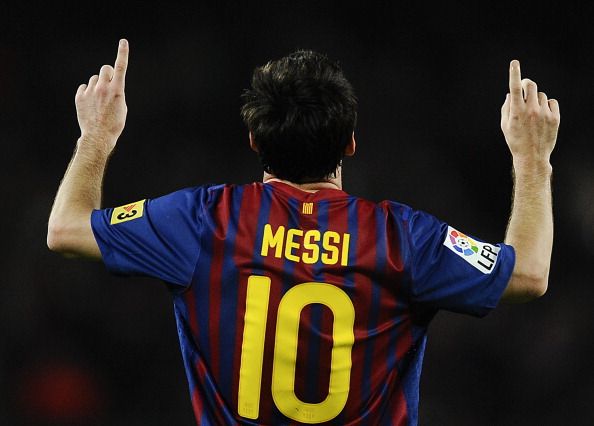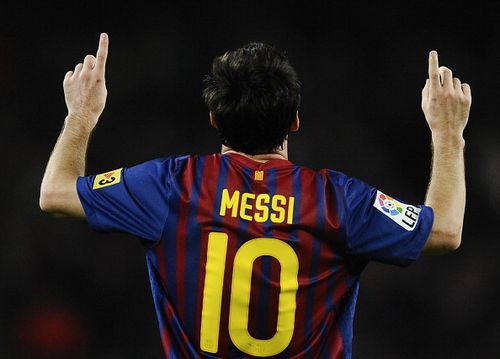
Lionel Messi: A genius well ahead of his time

On this day, 26 years ago, a genius was born in Rosario. A boy born with footballing talents. That same little boy was diagnosed with growth hormone deficiency, but it wasn’t enough to stop him from being the best footballer of our generation! Leo Messi’s journey from the youth academy of Newell’s Old Boys to being a four time Ballon d’Or winner has been an incredible one!
The Moment That Changed His Career
When Barcelona scouts saw Messi at Newell’s Old Boys, it didn’t take them long to realise how talented he was. At the age of 13, Barcelona offered Messi a chance to join La Masia, and also pay for all his medical expenses so that he could fulfil his dream of becoming a professional footballer. He grabbed the opportunity with both hands and quickly moved up the youth ranks.
It didn’t take him long to make his official La Liga debut for Barcelona. On 16 October 2004, Frank Rijkaard gave him the opportunity he was waiting for; it was against Espanyol, he came on as a substitute for Deco. Since then, Messi has gone to become Barcelona’s all time top scorer. It didn’t take him long to draw comparisons with one of the all time greats, Diego Maradona.
Rise To Stardom
2006/07 proved to be Messi’s season. He established himself as a regular starter in Frank Rijkaard’s side and went on to score 14 goals in the league, which included a hat-trick against Real Madrid in an El Clasico, which earned Barcelona a 3-3 draw. In the same season, he scored the Maradona’s-goal-of-the-century-esque goal against Getafe, dribbling past several opposition defenders before finishing with aplomb. He finished second in the 2007 FIFA World Player Of The Year awards behind Kaka, and second again in the following year, this time behind Cristiano Ronaldo.
It was a time for revolution at Barca in 2008. Pep Guardiola took over the managerial role after Frank Rijkaard’s departure and Messi took over the #10 shirt after Ronaldinho‘s departure. The little man didn’t choke under the burden of expectations, rather he performed so well that it was beyond one’s imagination. He was the key to Barcelona’s treble in that season. He went on to scoop up his first FIFA World Player Of The Year award in 2009.
The Consistency
Messi didn’t stop after the FIFA World Player Of The Year award in 2009. He continued his form into next season as Barcelona won the league and domestic cup double this time, falling to Mourinho’s Inter in the semi-final of the Champions League. Argentina endured a difficult World Cup in South Africa 2010, and so did Messi. He failed to score a single goal throughout the tournament, although he did assist a few. But it wasn’t enough to stop Messi from winning the FIFA Ballon d’Or (it was started in 2010 after merging the Ballon d’Or and FIFA World Player Of The Year awards). He continued scoring loads of goals and providing plenty of assists for Barcelona, but he couldn’t replicate that form for Argentina, as they once again failed in a major competition, Copa America 2011. It didn’t matter much though, as he went on to win the FIFA Ballon d’Or, to make it three in a row.
Stepping Up For Argentina
When Sabella was appointed as Argentina’s manager in August 2011, he made Messi the captain. With the captain’s armband and #10 shirt, Messi didn’t disappoint. Since then, he has scored 15+ goals for Argentina in as many appearances. He finally did justice to being the “New Maradona” claims.